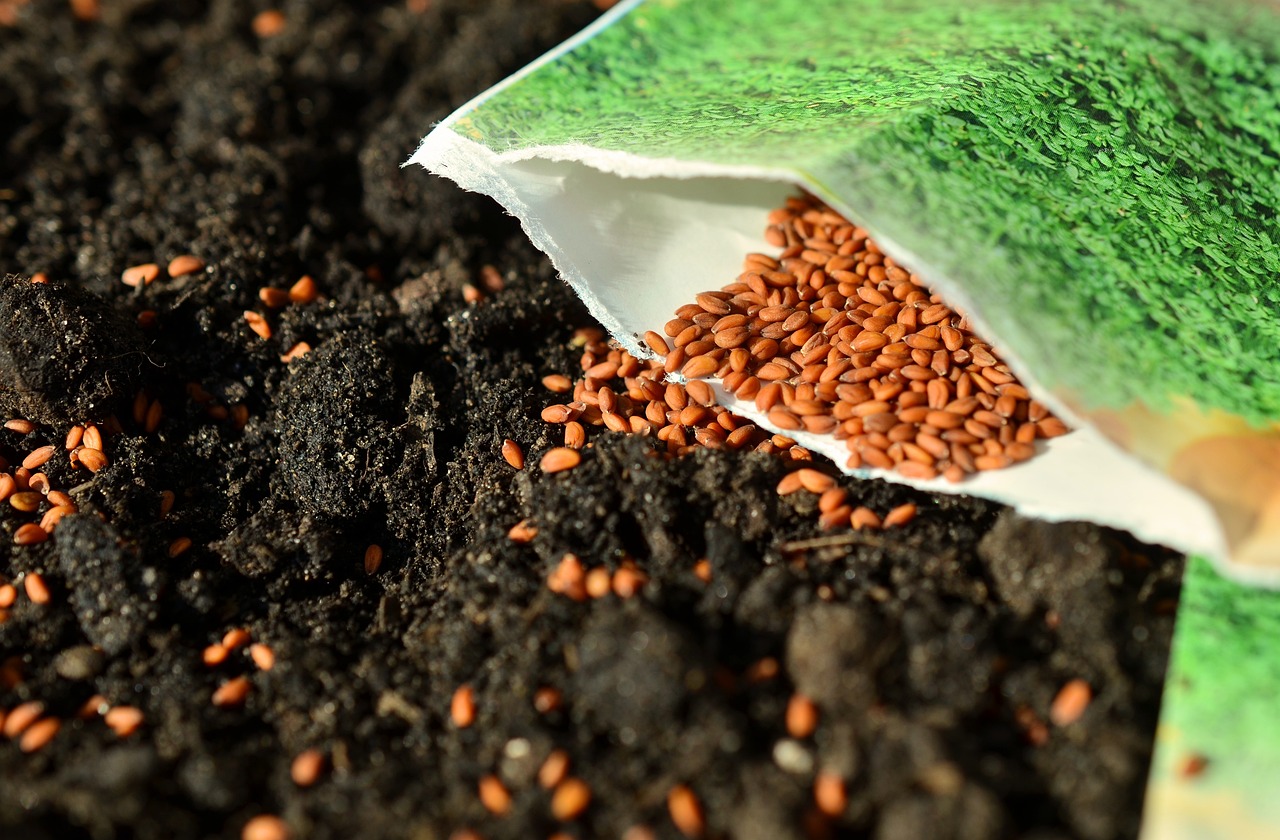This article delves into the nutritional profiles and health benefits of flaxseed and chia seeds, providing you with the necessary information to make an informed choice for your diet and wellness.
Flaxseeds, derived from the flax plant, have been cultivated for thousands of years and are known for their rich omega-3 fatty acid content. Chia seeds, on the other hand, come from the Salvia hispanica plant, native to Central America. Both seeds are celebrated for their nutritional value and health benefits, making them popular choices in modern diets.
| Nutrient | Flaxseed (per 100g) | Chia Seed (per 100g) |
|---|---|---|
| Calories | 534 | 486 |
| Protein | 18g | 17g |
| Fat | 42g | 31g |
| Fiber | 27g | 34g |
Flaxseeds are slightly more energy-dense than chia seeds, containing 534 calories per 100g compared to chia’s 486 calories. This difference may influence your choice depending on your caloric needs.
Both seeds are excellent sources of fiber and healthy fats. Flaxseeds are particularly rich in omega-3 fatty acids, while chia seeds offer a balance of protein and fiber that aids in digestion and satiety.
Flaxseeds boast numerous health benefits, including:
- Heart Health: Rich in omega-3 fatty acids, they help reduce inflammation and lower cholesterol levels.
- Digestive Health: High fiber content promotes regular bowel movements and gut health.
- Cancer Prevention: Some studies suggest that lignans in flaxseeds may have anti-cancer properties.
Chia seeds also provide a range of health advantages:
- Hydration: They absorb water and expand, helping to keep you hydrated.
- Weight Management: High fiber content promotes feelings of fullness, aiding in weight control.
- Nutrient Density: Packed with vitamins and minerals, chia seeds are a great addition to any diet.
The omega-3 fatty acids in flaxseeds play a crucial role in promoting cardiovascular health by reducing blood pressure and improving cholesterol levels.
Chia seeds can assist in weight management due to their ability to absorb liquid and expand in the stomach, promoting a feeling of fullness that can help reduce overall calorie intake.
Adding these seeds to your diet is simple:
- Sprinkle them on salads or yogurt.
- Blend into smoothies for a nutritional boost.
- Incorporate into baked goods like muffins or bread.
While generally safe, excessive consumption of flaxseeds can lead to digestive issues due to their high fiber content. It’s recommended to start with small amounts and increase gradually.
Your choice between flaxseeds and chia seeds may depend on your specific health goals. If you’re looking for omega-3 fatty acids and heart health support, flaxseeds may be the better option. Conversely, if you need a seed high in fiber and hydration properties, chia seeds could be more beneficial.
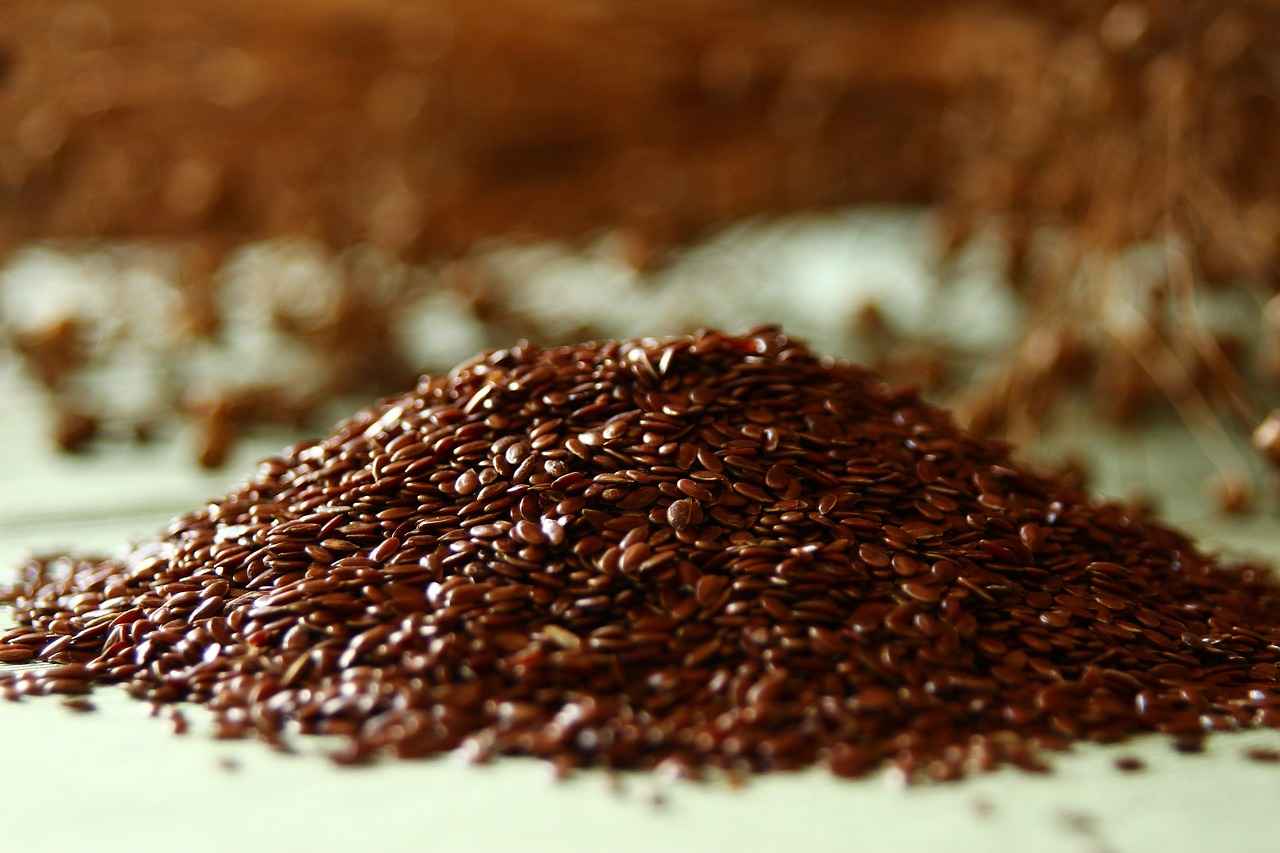
What Are Flaxseeds and Chia Seeds?
Flaxseeds and chia seeds are two of the most popular superfoods celebrated for their impressive nutritional profiles and numerous health benefits. Understanding their origins and characteristics is essential for appreciating their nutritional value and health benefits.
Flaxseeds (Linum usitatissimum) are derived from the flax plant, which has been cultivated for thousands of years. Originally native to the Mediterranean region, flax has been used for both its fibers and seeds. The seeds are small, flat, and have a smooth texture. They come in two main varieties: brown and golden, both of which offer similar nutritional benefits. Flaxseeds are rich in omega-3 fatty acids, particularly alpha-linolenic acid (ALA), which is crucial for heart health.
On the other hand, chia seeds (Salvia hispanica) are derived from the flowering plant in the mint family, native to Central and South America. Historically, chia seeds were a staple in the diet of the Aztecs and Mayans, who valued them for their energy-boosting properties. Chia seeds are tiny, oval-shaped, and have a unique ability to absorb water, swelling up to ten times their weight. This characteristic not only enhances their nutritional profile but also aids in hydration.
Both seeds are often touted for their high fiber content, making them excellent additions to a balanced diet. Flaxseeds contain both soluble and insoluble fiber, promoting digestive health and regularity. Chia seeds also provide a significant amount of fiber, which contributes to feelings of fullness and may assist in weight management.
In terms of nutritional value, flaxseeds are particularly high in lignans, phytoestrogens that may have antioxidant properties. They also provide a good source of protein and healthy fats. Chia seeds, while also rich in protein and healthy fats, are particularly noted for their high levels of calcium, magnesium, and phosphorus, which are essential for bone health.
When it comes to incorporating these seeds into your diet, both flaxseeds and chia seeds can be easily added to smoothies, yogurts, or baked goods. However, it is important to note that flaxseeds should be ground for optimal nutrient absorption, while chia seeds can be consumed whole or soaked in liquid.
In summary, understanding the origins and characteristics of flaxseeds and chia seeds not only enriches your knowledge of these superfoods but also empowers you to make informed dietary choices. Their unique properties and health benefits make them valuable additions to any health-conscious diet.
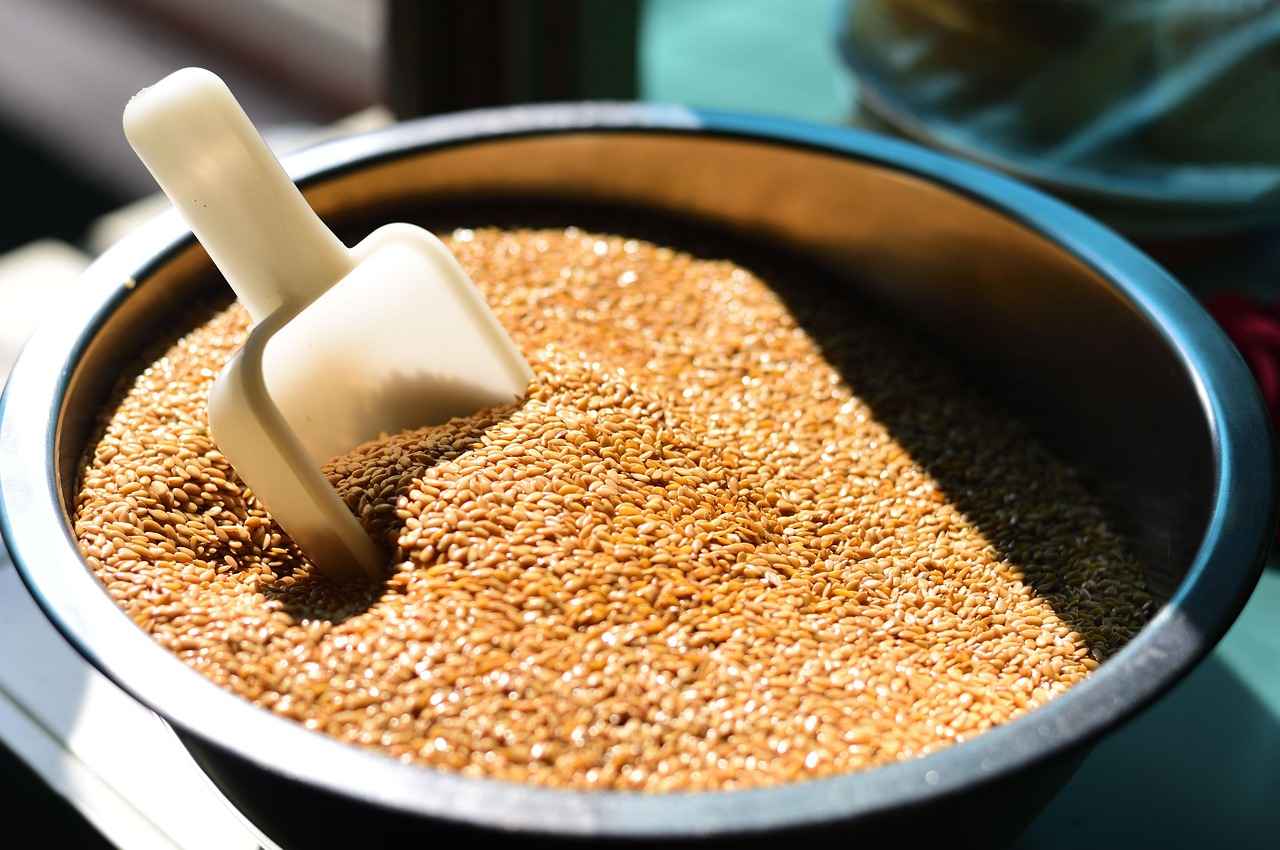
How Do Flaxseed and Chia Seed Nutritional Profiles Compare?
Flaxseed and chia seeds are both celebrated for their impressive nutritional profiles and health benefits. Understanding how their nutritional contents compare can significantly aid in making informed dietary choices. This section delves into the specifics of their macronutrient compositions, vitamins, and mineral contents, providing a comprehensive overview of each seed’s strengths.
When examining macronutrients, both flaxseeds and chia seeds boast impressive profiles, but they differ in specific areas:
| Macronutrient | Flaxseeds (per 100g) | Chia Seeds (per 100g) |
|---|---|---|
| Calories | 534 | 486 |
| Protein | 18g | 17g |
| Fat | 42g | 31g |
| Carbohydrates | 29g | 42g |
| Fiber | 27g | 34g |
Both seeds are nutrient-dense, offering a range of vitamins and minerals:
- Flaxseeds are rich in:
- Vitamin B1 (Thiamine)
- Magnesium
- Phosphorus
- Iron
- Chia seeds provide:
- Calcium
- Potassium
- Magnesium
- Iron
One of the standout features of both flaxseeds and chia seeds is their high content of omega-3 fatty acids. Flaxseeds are particularly rich in alpha-linolenic acid (ALA), a plant-based omega-3, which is essential for heart health. Chia seeds also contain ALA but in slightly lesser amounts. Both seeds contribute to anti-inflammatory properties and support cardiovascular health.
In addition to their macronutrients, both seeds are excellent sources of antioxidants. Flaxseeds contain lignans, which have antioxidant properties that may help reduce the risk of certain cancers. Chia seeds are rich in various antioxidants that help combat oxidative stress and inflammation throughout the body.
When comparing the nutritional profiles of flaxseeds and chia seeds, it’s clear that both offer unique benefits. Flaxseeds are slightly higher in calories and healthy fats, while chia seeds provide more fiber and essential minerals. Depending on your dietary needs and health goals, you may choose one over the other or incorporate both into your diet for a well-rounded nutrient intake.
Caloric Content: Which Seed Is More Energy-Dense?
When it comes to choosing healthy seeds for your diet, understanding their caloric content is crucial. In this section, we will delve into the caloric differences between flaxseeds and chia seeds, highlighting their energy contributions and helping you make informed dietary choices.
Caloric Overview
Flaxseeds and chia seeds are both nutrient-dense options that offer various health benefits. However, their caloric profiles differ significantly. On average, one tablespoon (about 10 grams) of flaxseeds contains approximately 55 calories, while the same serving of chia seeds holds around 58 calories. Although the difference may seem minimal, it can add up depending on how much you consume.
| Seed Type | Calories (per 1 tbsp) |
|---|---|
| Flaxseeds | 55 |
| Chia Seeds | 58 |
Energy Contribution and Nutritional Context
While the caloric difference is slight, it’s essential to consider the overall nutritional context. Both seeds are rich in healthy fats, particularly omega-3 fatty acids, which contribute to their health benefits. Flaxseeds are especially noted for their high lignan content, which has antioxidant properties, while chia seeds are praised for their ability to absorb water and form a gel-like substance, aiding in hydration.
Factors Influencing Energy Density
The energy density of these seeds can be influenced by several factors, including their moisture content and processing methods. For instance, ground flaxseeds may have a slightly different caloric value compared to whole flaxseeds due to the increased surface area, which can affect digestion and absorption. Similarly, chia seeds can expand in liquid, creating a feeling of fullness, which may impact how many calories you consume overall.
Incorporating Seeds into Your Diet
Understanding the caloric content of flaxseeds and chia seeds can help you incorporate them into your diet effectively. Here are some practical tips:
- Use flaxseeds in smoothies or oatmeal for added nutrition.
- Add chia seeds to yogurt or puddings for a nutritious snack.
- Experiment with both seeds in baking recipes to enhance flavor and texture.
In conclusion, while both flaxseeds and chia seeds offer similar caloric values, their unique properties and nutritional benefits make them valuable additions to your diet. By understanding their caloric content and how to incorporate them into your meals, you can better align your dietary choices with your health goals.
Macronutrient Breakdown: Fiber, Protein, and Fats
When it comes to enhancing your diet with nutritious options, flaxseeds and chia seeds are often at the forefront of health discussions. Both seeds are packed with essential nutrients, making them excellent additions to a balanced diet. In this section, we will delve into the macronutrient profiles of these seeds, focusing on their fiber, protein, and healthy fats content, which are crucial for dietary considerations.
The macronutrient composition of flaxseeds and chia seeds reveals their potential health benefits. Let’s break down the key components:
| Macronutrient | Flaxseeds (per 100g) | Chia Seeds (per 100g) |
|---|---|---|
| Calories | 534 | 486 |
| Protein | 18g | 17g |
| Fiber | 27g | 34g |
| Healthy Fats | 42g | 31g |
Both flaxseeds and chia seeds are excellent sources of dietary fiber, which is essential for maintaining digestive health. Flaxseeds contain approximately 27 grams of fiber per 100 grams, while chia seeds boast an impressive 34 grams. High fiber intake is linked to various health benefits, including:
- Improved bowel regularity
- Enhanced satiety, aiding in weight management
- Lower cholesterol levels
The soluble fiber found in these seeds can also help stabilize blood sugar levels, making them beneficial for those managing diabetes.
Protein is another critical macronutrient present in both seeds. Flaxseeds offer about 18 grams of protein per 100 grams, while chia seeds provide around 17 grams. Protein is vital for:
- Muscle repair and growth
- Supporting immune function
- Regulating hormones and enzymes
Incorporating these seeds into your diet can help meet your daily protein needs, especially for those following a plant-based diet.
When it comes to healthy fats, both flaxseeds and chia seeds shine. Flaxseeds are particularly rich in omega-3 fatty acids, which have been shown to support heart health by reducing inflammation and lowering blood pressure. They contain about 42 grams of fat per 100 grams, with a significant portion being alpha-linolenic acid (ALA), a type of omega-3.
Chia seeds, while slightly lower in total fat at 31 grams per 100 grams, also provide a good amount of omega-3s along with omega-6 fatty acids. These healthy fats are essential for:
- Maintaining brain health
- Supporting skin health
- Promoting overall cardiovascular health
In summary, both flaxseeds and chia seeds offer impressive macronutrient profiles, making them valuable additions to any diet. Their high fiber content supports digestive health, their protein helps build and repair tissues, and their healthy fats contribute to heart health. By understanding these benefits, you can make informed choices about incorporating these seeds into your meals.
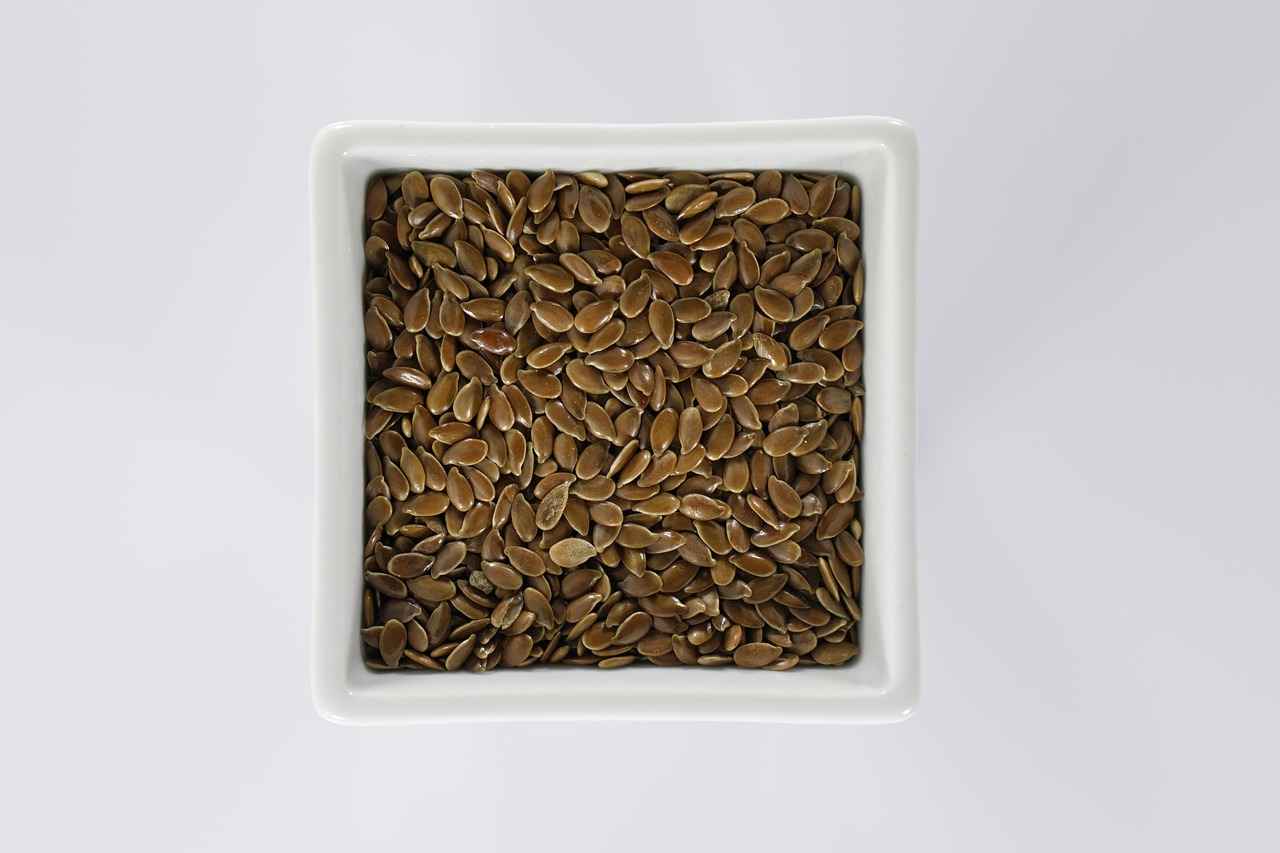
What Are the Health Benefits of Flaxseeds?
Flaxseeds, tiny yet powerful, have gained significant attention in the health community due to their impressive array of health benefits. These seeds are packed with essential nutrients and have been linked to various health improvements, making them a valuable addition to any diet. In this section, we will explore the numerous health benefits of flaxseeds, including their impact on heart health, digestive health, and potential cancer-fighting properties.
Flaxseeds are rich in omega-3 fatty acids, particularly alpha-linolenic acid (ALA), which is known for its ability to support cardiovascular health. Regular consumption of flaxseeds can help reduce blood pressure, lower cholesterol levels, and improve overall heart function. Studies have shown that incorporating flaxseeds into your diet may lead to a significant decrease in the risk of heart disease.
Flaxseeds are an excellent source of dietary fiber, which is crucial for maintaining a healthy digestive system. The soluble fiber in flaxseeds helps to regulate bowel movements and prevent constipation, while the insoluble fiber promotes a healthy gut microbiome. Additionally, the mucilage in flaxseeds can soothe the digestive tract, making them beneficial for individuals with gastrointestinal issues.
Research suggests that flaxseeds may have anti-cancer properties, particularly concerning hormone-related cancers such as breast and prostate cancer. The lignans found in flaxseeds are phytoestrogens that may help balance hormone levels and inhibit tumor growth. Some studies indicate that a diet rich in flaxseeds may lower the risk of developing certain types of cancer, although more research is needed to fully understand this relationship.
Incorporating flaxseeds into your diet can also aid in weight management. Their high fiber content promotes feelings of fullness, which can help control appetite and reduce overall caloric intake. Additionally, the healthy fats in flaxseeds provide sustained energy, making them an ideal snack for those looking to maintain or lose weight.
Adding flaxseeds to your meals is simple and versatile. You can sprinkle ground flaxseeds on yogurt, mix them into smoothies, or use them in baking recipes. For optimal health benefits, it is recommended to consume ground flaxseeds rather than whole seeds, as the grinding process makes the nutrients more accessible.
In conclusion, flaxseeds are a powerhouse of nutrition, offering a multitude of health benefits that can enhance overall well-being. From supporting heart health to aiding digestion and potentially fighting cancer, these tiny seeds are a worthwhile addition to any health-conscious diet.
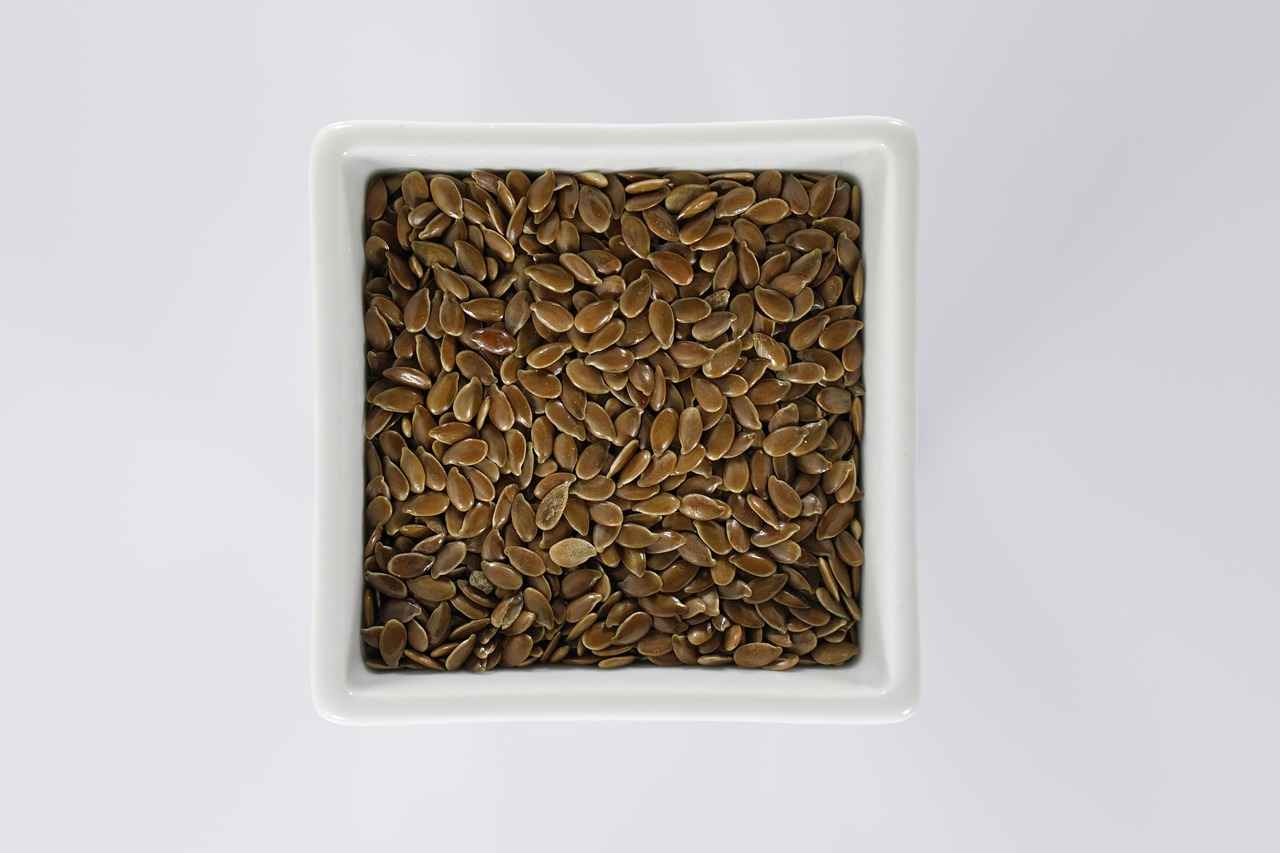
What Are the Health Benefits of Chia Seeds?
Chia seeds, derived from the Salvia hispanica plant, have gained popularity as a superfood due to their impressive health benefits. These tiny seeds are packed with essential nutrients that contribute to overall wellness. In this section, we will delve into the various health advantages of chia seeds, focusing on improved hydration, weight management, and nutrient density.
One of the most notable benefits of chia seeds is their ability to enhance hydration. When soaked in liquid, chia seeds can absorb up to 12 times their weight in water. This property not only helps to keep you hydrated but also aids in maintaining optimal electrolyte balance in the body. Consuming chia seeds can be particularly beneficial for athletes or individuals engaging in intense physical activities, as they help replenish lost fluids and minerals.
Chia seeds are an excellent addition to any weight management plan. Their high fiber content, which makes up about 34% of their total weight, contributes to feelings of fullness and satiety. This can significantly reduce overall calorie intake and curb unhealthy snacking. Additionally, the soluble fiber in chia seeds forms a gel-like substance when mixed with water, which can slow down digestion and help stabilize blood sugar levels, further supporting weight loss efforts.
Chia seeds are incredibly nutrient-dense, making them a valuable addition to your diet. They are rich in essential nutrients such as:
- Omega-3 fatty acids: Important for heart health and cognitive function.
- Protein: Aids in muscle repair and growth.
- Vitamins and minerals: Including calcium, magnesium, and phosphorus, which are vital for bone health.
- Antioxidants: Help combat oxidative stress and inflammation in the body.
Incorporating chia seeds into your meals can significantly boost your nutrient intake without adding excessive calories.
Incorporating chia seeds into your daily routine is simple and versatile. Here are some practical tips:
- Add them to smoothies for a nutrient boost.
- Use them in baking, such as in muffins or bread.
- Mix them into yogurt or oatmeal for added texture and nutrition.
- Prepare chia pudding by soaking them in almond milk or coconut milk overnight.
These methods not only enhance the nutritional value of your meals but also provide a delightful crunch and unique flavor.
In summary, chia seeds offer a multitude of health benefits, including improved hydration, effective weight management, and a rich nutrient profile. By incorporating them into your diet, you can enjoy these advantages while enhancing your overall health.
How Do Flaxseeds Support Heart Health?
Flaxseeds have gained significant attention in recent years for their potential benefits to cardiovascular health. This article delves into the mechanisms through which flaxseeds promote heart health, focusing on their rich content of omega-3 fatty acids and dietary fiber.
Omega-3 fatty acids are essential fats that the body cannot produce on its own, making it crucial to obtain them through diet. Flaxseeds are one of the richest plant sources of these fatty acids, particularly alpha-linolenic acid (ALA). Research indicates that ALA can help reduce inflammation, lower blood pressure, and improve overall heart function.
Flaxseeds are also an excellent source of dietary fiber. This fiber not only aids in digestion but also plays a significant role in maintaining heart health. A high-fiber diet is associated with lower cholesterol levels, which can reduce the risk of heart disease. The soluble fiber in flaxseeds helps to bind cholesterol and remove it from the body, further supporting cardiovascular wellness.
Numerous studies have highlighted the positive effects of flaxseeds on heart health. For instance, a study published in the American Journal of Clinical Nutrition found that regular consumption of flaxseeds was linked to a reduction in blood pressure and improved lipid profiles. Another research indicated that the incorporation of flaxseeds into the diet led to significant reductions in total cholesterol and triglycerides.
- Smoothies: Add ground flaxseeds to your morning smoothie for a nutrient boost.
- Baking: Substitute a portion of flour in recipes with ground flaxseeds.
- Salads: Sprinkle whole or ground flaxseeds on salads for added crunch and nutrition.
While flaxseeds offer numerous health benefits, moderation is key. Consuming large quantities can lead to digestive issues due to their high fiber content. It is advisable to start with a small amount and gradually increase intake. Additionally, those taking blood thinners should consult a healthcare provider before significantly increasing flaxseed consumption, as omega-3s can have a blood-thinning effect.
In summary, flaxseeds serve as a powerful ally in promoting cardiovascular health. Their rich content of omega-3 fatty acids and dietary fiber can help reduce inflammation, lower cholesterol levels, and improve overall heart function. By incorporating flaxseeds into your diet, you can take proactive steps toward maintaining a healthy heart.
Can Chia Seeds Aid in Weight Loss?
Chia seeds have gained significant attention in recent years for their potential benefits in weight management. These tiny seeds pack a powerful nutritional punch, primarily due to their high fiber content and unique ability to promote satiety. Understanding how chia seeds contribute to weight loss can help you incorporate them effectively into your diet.
Chia seeds are rich in soluble fiber, which can absorb water and expand in the stomach. This expansion can lead to a feeling of fullness, reducing overall appetite and calorie intake. A single ounce (about 28 grams) of chia seeds contains approximately 11 grams of fiber, which is about 44% of the recommended daily intake for adults. This high fiber content is crucial for promoting digestive health and can help regulate blood sugar levels, preventing spikes that often lead to cravings.
The mechanism behind chia seeds’ ability to promote satiety lies in their gel-like consistency when mixed with liquids. When chia seeds are soaked in water or added to smoothies, they absorb up to 12 times their weight in liquid. This gel formation not only slows down the digestion process but also helps you feel fuller for longer periods. As a result, incorporating chia seeds into meals can help reduce the urge to snack between meals.
In addition to their fiber content, chia seeds are also a source of essential nutrients. They are rich in omega-3 fatty acids, protein, and various vitamins and minerals, including calcium, magnesium, and phosphorus. This nutrient density makes chia seeds a valuable addition to a weight-loss diet, as they provide essential nutrients without excessive calories.
Incorporating chia seeds into your diet is simple and versatile. Here are some practical ways to enjoy them:
- Chia Pudding: Mix chia seeds with your choice of milk or yogurt and let them sit overnight. Add fruits and nuts for a nutritious breakfast or snack.
- Smoothies: Blend chia seeds into your favorite smoothies for added fiber and nutrients.
- Baking: Add chia seeds to muffins, bread, or energy bars to enhance their nutritional profile.
- Salads: Sprinkle chia seeds on salads for a crunchy texture and nutrient boost.
While chia seeds are generally safe for most people, moderation is key. Start with a small amount, such as one tablespoon per day, and gradually increase if desired. It’s also important to consume chia seeds with adequate liquid to avoid digestive discomfort. Hydration is crucial, as the seeds absorb water and expand in the stomach.
In summary, chia seeds can indeed aid in weight management due to their high fiber content and ability to promote satiety. Their nutrient density and versatility make them an excellent addition to a balanced diet. By incorporating chia seeds into various meals and snacks, you can enhance your overall nutritional intake while supporting your weight loss goals.
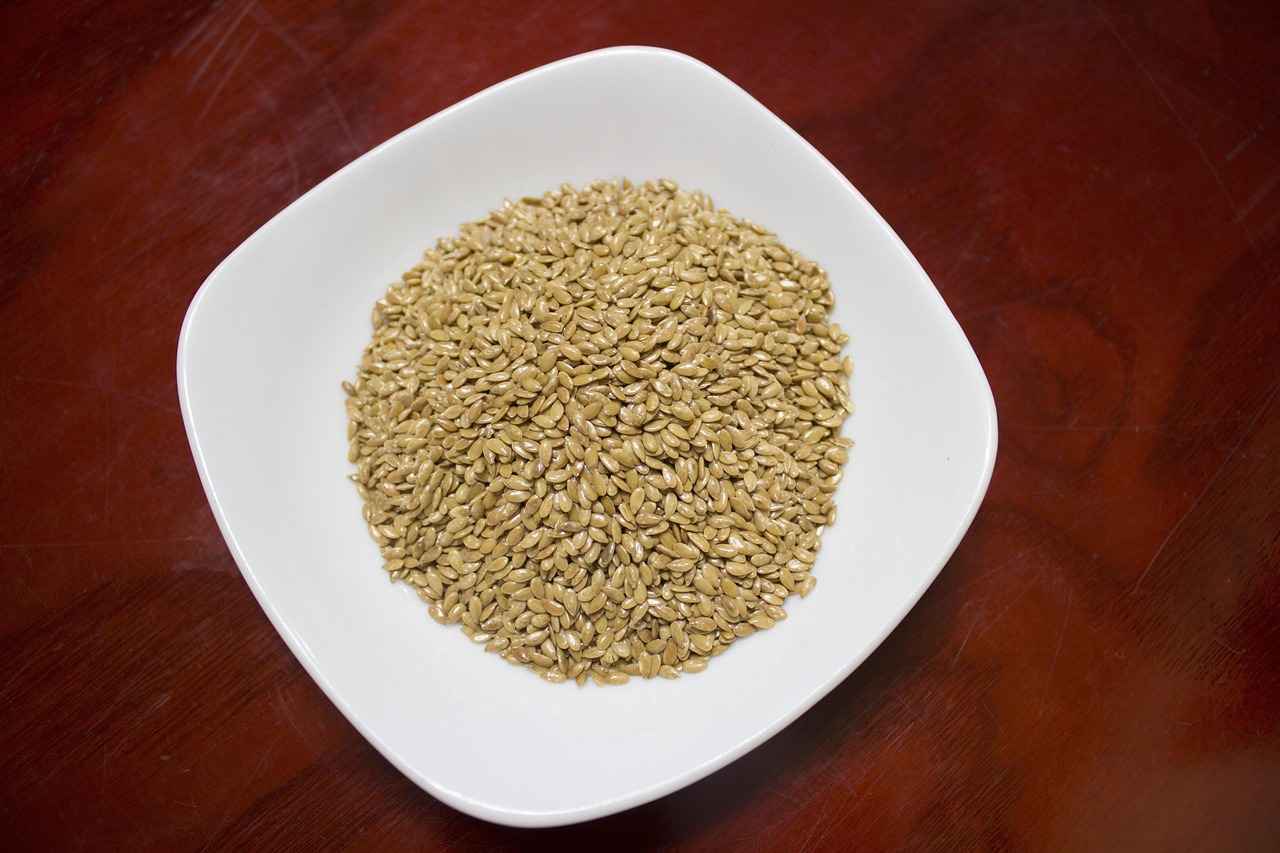
How to Incorporate Flaxseeds and Chia Seeds into Your Diet?
Incorporating flaxseeds and chia seeds into your diet can significantly enhance your nutritional intake. Both seeds are packed with essential nutrients, and their versatility allows for easy integration into various meals. Here are some practical tips to help you maximize their benefits:
- Start Your Day Right: Add a tablespoon of ground flaxseeds or chia seeds to your morning smoothie or oatmeal. This not only boosts fiber content but also adds a nutty flavor.
- Baking Boost: Incorporate flaxseeds or chia seeds into your baking recipes. They can be added to muffins, bread, or pancakes. For a binding agent, mix chia seeds with water to create a gel-like substance that replaces eggs in vegan recipes.
- Salad Enhancer: Sprinkle whole or ground seeds over salads for added crunch and nutrition. They pair well with leafy greens, nuts, and dressings.
- Yogurt or Cottage Cheese: Mix flaxseeds or chia seeds into your yogurt or cottage cheese for a nutritious snack. This combination provides protein and healthy fats, keeping you full longer.
- Soups and Stews: Add a tablespoon of chia seeds or ground flaxseeds to soups and stews. They thicken the texture while contributing omega-3 fatty acids and fiber.
- Healthy Snacks: Create energy bites or bars using dates, nuts, and seeds. These make for a nutritious on-the-go snack that satisfies your sweet tooth.
When incorporating these seeds, it’s important to consider the following:
- Serving Size: A typical serving size is about one to two tablespoons. Moderation is key to avoid digestive discomfort.
- Ground vs. Whole: Ground flaxseeds are easier for your body to digest, while chia seeds can be consumed whole. However, soaking chia seeds in water before consumption can enhance their digestibility.
- Storage: Store flaxseeds in a cool, dark place to prevent them from going rancid. Chia seeds can be stored in the pantry as they have a longer shelf life.
In conclusion, by creatively incorporating flaxseeds and chia seeds into your meals, you can enjoy their numerous health benefits while enhancing the flavor and texture of your dishes. Whether you’re looking to boost your fiber intake, improve heart health, or simply add a nutritious twist to your meals, these seeds are a fantastic addition to any diet.
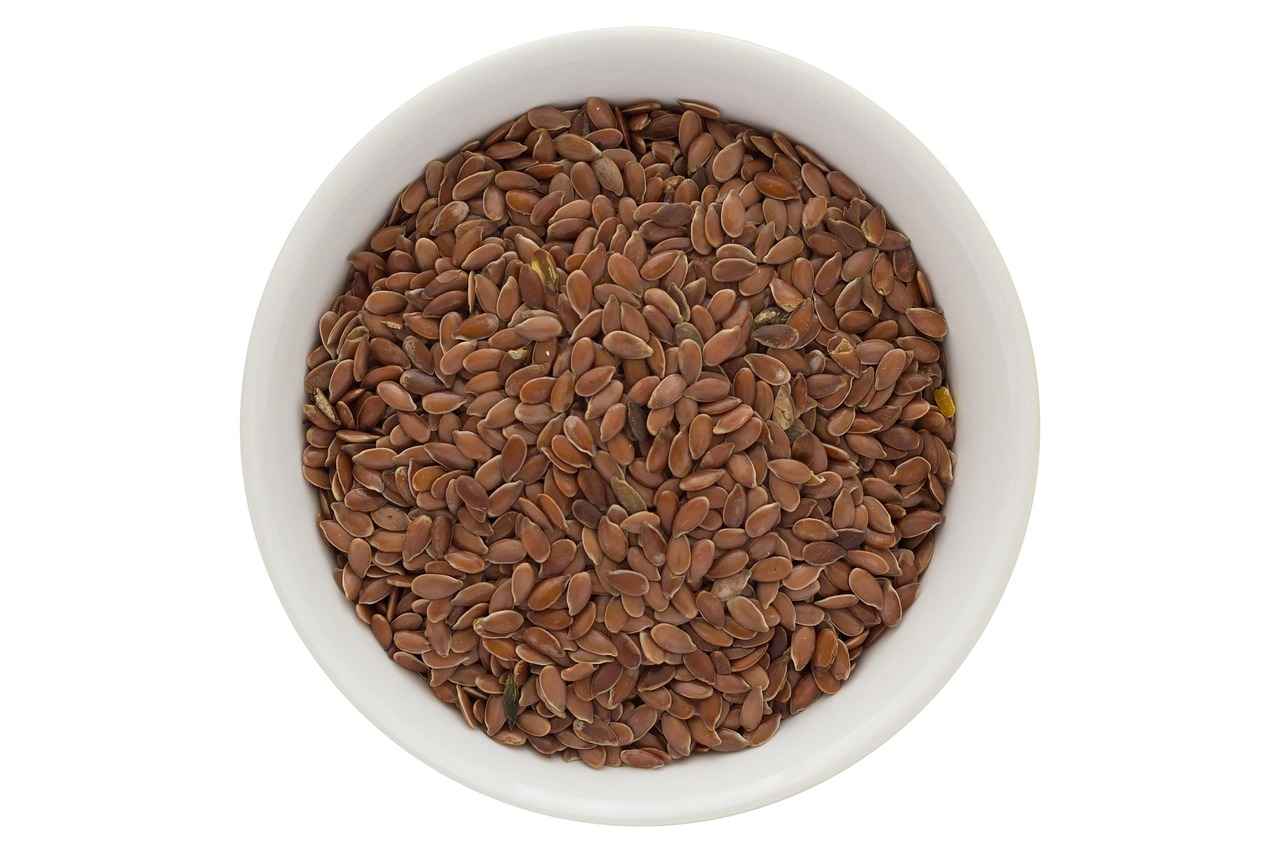
Are There Any Risks or Side Effects?
When incorporating flaxseeds and chia seeds into your diet, it’s important to be aware of potential risks and side effects. While both seeds are celebrated for their health benefits, they can also pose certain challenges for some individuals.
- Digestive Issues: Both flaxseeds and chia seeds are high in fiber. While fiber is essential for digestive health, excessive consumption can lead to bloating, gas, and even diarrhea. It is advisable to gradually increase your intake and ensure adequate hydration.
- Allergic Reactions: Although rare, some individuals may experience allergic reactions to flaxseeds or chia seeds. Symptoms may include itching, swelling, or difficulty breathing. If you notice any adverse reactions, discontinue use and consult a healthcare professional.
- Hormonal Effects: Flaxseeds contain phytoestrogens, which may affect hormone levels. While these compounds can be beneficial for some, they may not be suitable for individuals with hormone-sensitive conditions, such as certain types of breast cancer. It is crucial to consult with a healthcare provider if you have any concerns.
- Medication Interactions: Flaxseeds and chia seeds may interact with certain medications, particularly blood thinners, due to their omega-3 fatty acid content. If you are on medication, discuss your dietary choices with your doctor to avoid any potential complications.
- Choking Hazard: Chia seeds can absorb a significant amount of water and expand in size. If consumed dry, they may pose a choking hazard, especially for individuals with swallowing difficulties. Always soak chia seeds or consume them in a liquid medium.
To ensure safe dietary practices, consider the following tips:
- Start Small: Begin with small amounts of flaxseeds or chia seeds, gradually increasing your intake as your body adjusts.
- Hydrate: Drink plenty of water when consuming high-fiber foods to help prevent digestive discomfort.
- Consult Professionals: Speak with a healthcare provider or nutritionist if you have pre-existing health conditions or are taking medications.
In summary, while flaxseeds and chia seeds offer numerous health benefits, being aware of potential risks and side effects is essential. By practicing safe dietary habits and consulting with professionals, you can enjoy these nutritious seeds while minimizing any adverse effects.
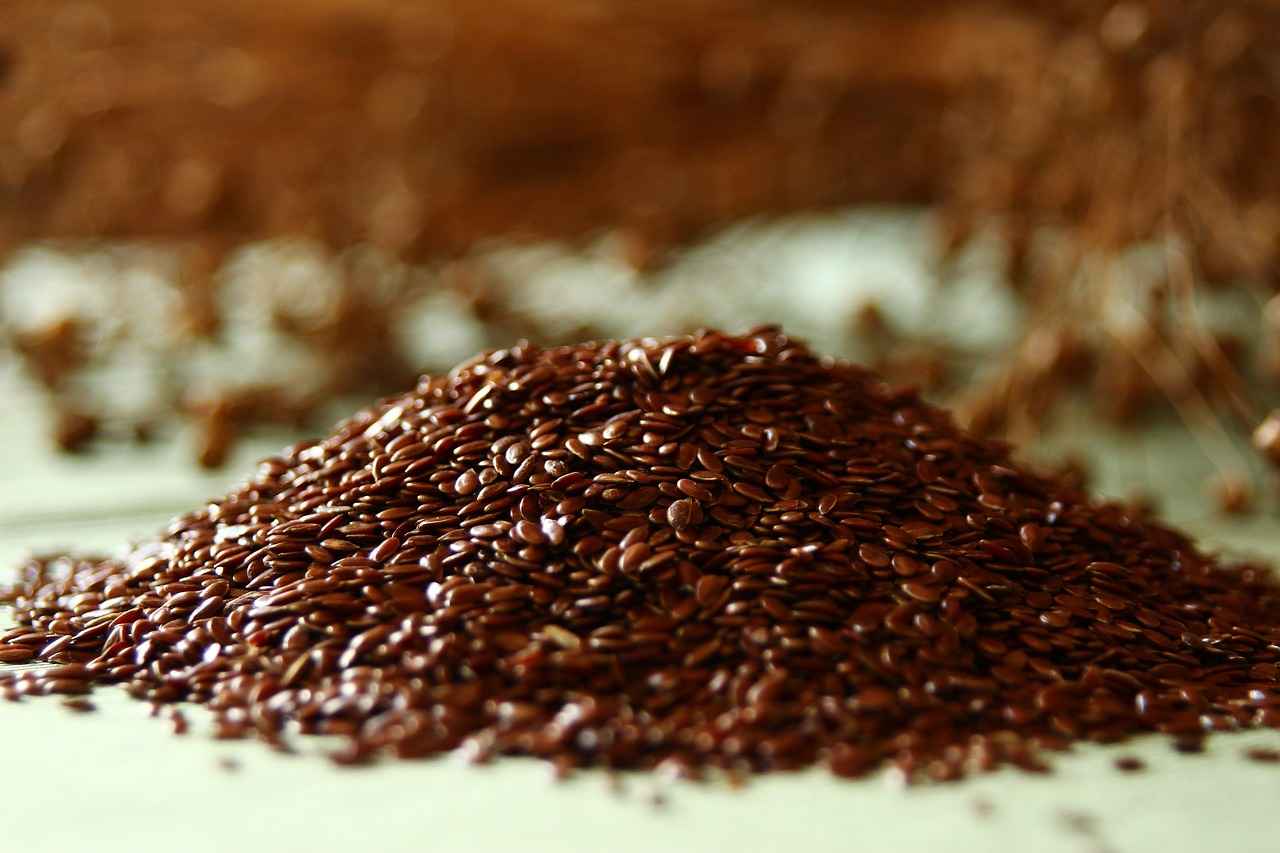
Which Seed Should You Choose for Your Health Goals?
When it comes to making dietary choices, particularly in the realm of seeds, understanding the distinct benefits of flaxseeds and chia seeds is crucial. Each type of seed offers unique nutritional profiles and health advantages that can align with specific health objectives. This guide aims to help you make an informed decision based on your individual dietary needs.
Before choosing between flaxseeds and chia seeds, it’s essential to evaluate your health goals. Are you looking to improve heart health, manage weight, or enhance digestive function? Each seed has properties that cater to different health objectives:
- Flaxseeds: Known for their high content of omega-3 fatty acids and fiber, flaxseeds are particularly beneficial for heart health and digestive support.
- Chia Seeds: Rich in antioxidants, protein, and fiber, chia seeds are excellent for weight management and hydration.
Both flaxseeds and chia seeds are nutrient-dense, but their compositions vary significantly:
| Nutrient | Flaxseeds (per 1 oz) | Chia Seeds (per 1 oz) |
|---|---|---|
| Calories | 150 | 138 |
| Protein | 5.2g | 4.7g |
| Fiber | 7.8g | 10.6g |
| Omega-3 Fatty Acids | 6.3g | 5.1g |
If your primary goal is to enhance digestive health, chia seeds may be the better option due to their higher fiber content. The soluble fiber in chia seeds absorbs water, forming a gel-like substance that aids in digestion and promotes feelings of fullness. Flaxseeds also provide fiber, but they are particularly beneficial for regulating bowel movements.
For those focused on weight management, chia seeds can be particularly effective. Their ability to absorb liquid and expand in the stomach can help curb appetite, making you feel fuller for longer. Flaxseeds, while also beneficial, are more calorie-dense and may require careful portion control.
When it comes to heart health, flaxseeds take the lead due to their high concentration of omega-3 fatty acids, which can help reduce inflammation and improve cholesterol levels. Incorporating flaxseeds into your diet may lower the risk of cardiovascular diseases.
Integrating these seeds into your meals can enhance their health benefits:
- Flaxseeds: Add ground flaxseeds to smoothies, oatmeal, or baked goods.
- Chia Seeds: Use chia seeds in puddings, sprinkle on salads, or mix into yogurt.
Ultimately, the choice between flaxseeds and chia seeds should align with your specific health objectives and dietary preferences. Both seeds offer remarkable health benefits, and incorporating them into your diet can contribute significantly to overall wellness.
Frequently Asked Questions
- What are the main differences between flaxseeds and chia seeds?
Flaxseeds and chia seeds both pack a nutritional punch, but they differ in their nutrient profiles. Flaxseeds are higher in omega-3 fatty acids, while chia seeds offer more fiber and protein. Think of flaxseeds as the heart-healthy choice and chia seeds as the ultimate hydration helper!
- How can I add flaxseeds and chia seeds to my diet?
Incorporating these seeds into your meals is a breeze! You can sprinkle them on yogurt, blend them into smoothies, or mix them into baked goods. Just a spoonful can boost your meal’s nutritional value and add a delightful crunch!
- Are there any side effects to consuming flaxseeds or chia seeds?
While both seeds are generally safe, consuming them in large amounts can lead to digestive discomfort. It’s best to start with small quantities and increase gradually. Just like with anything, moderation is key!
- Which seed is better for weight loss?
Chia seeds may have the edge here due to their high fiber content, which helps you feel full longer. However, flaxseeds also contribute to weight management with their healthy fats. So, why not enjoy both?
- Can I use flaxseed oil instead of seeds?
Absolutely! Flaxseed oil is a great alternative if you’re looking for a concentrated source of omega-3s. Just remember, it lacks the fiber found in whole flaxseeds, so balance is essential!












